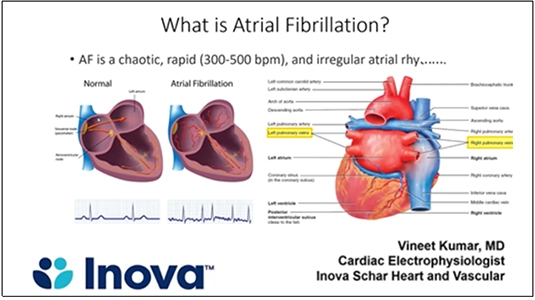In addition to an electrophysiologist, the number of specialists involved in a patient's care will be determined following their comprehensive assessment.
Electrophysiologist (EP)
Electrophysiologists are cardiologists with additional training in electrical impulses in the heart. They diagnose and treat disruptions in the normal heart rhythm (arrhythmias), including AFib, and are trained to use specialized testing, devices, and catheterization procedures, including catheter ablation. The EP will lead your AFib care and may prescribe medication and lifestyle changes, in addition to performing any necessary procedures.
Cardiologist
If you aren’t already working with a cardiologist, we can provide one. Cardiologists focus on overall heart health, often providing the initial AFib diagnosis. They are an essential partner in the maintenance and monitoring of heart care.
Sleep Specialist
Half of patients with AFib also have sleep apnea. This specialist will help manage sleep apnea if present. If left untreated over time, sleep apnea can lead to the onset of risk factors such as hypertension and diabetes that predispose a person to AFib. In fact, patients with sleep apnea have four times the risk of developing AFib. Our sleep specialist will help manage sleep apnea if present.
Weight Management Specialist
Because obesity is a well-established risk factor for AFib, if you are experiencing (or are at risk for) obesity, we will discuss programs and services to help our patients manage their weight. Exercise and weight loss can improve outcomes for patients with established AFib.
Behavioral Health Specialist
Coping with a complex condition like AFib can take a toll on your mental health. Our behavioral health team helps AFib patients focus on the connection between a patient's psychological and physical health.
Clinical Pharmacist
Patients with AFib may receive long-term oral anticoagulation medication to help prevent blood clots and reduce the risk of stroke, as well as antiarrhythmic medication to prevent and treat their abnormal heartbeats. Our pharmacist can both prescribe and explain these medications to you.






